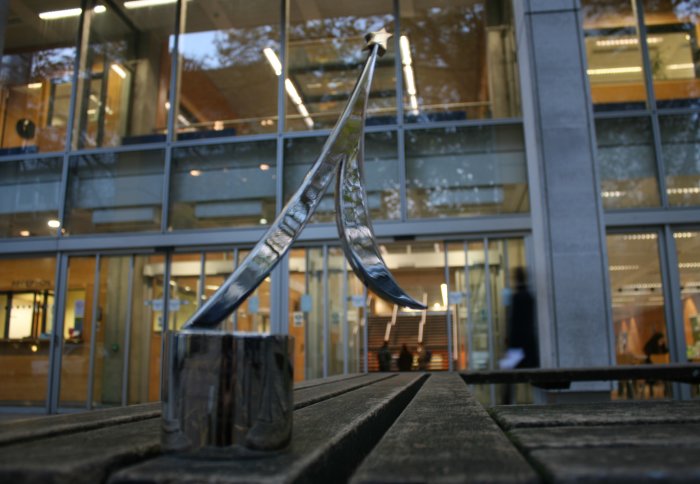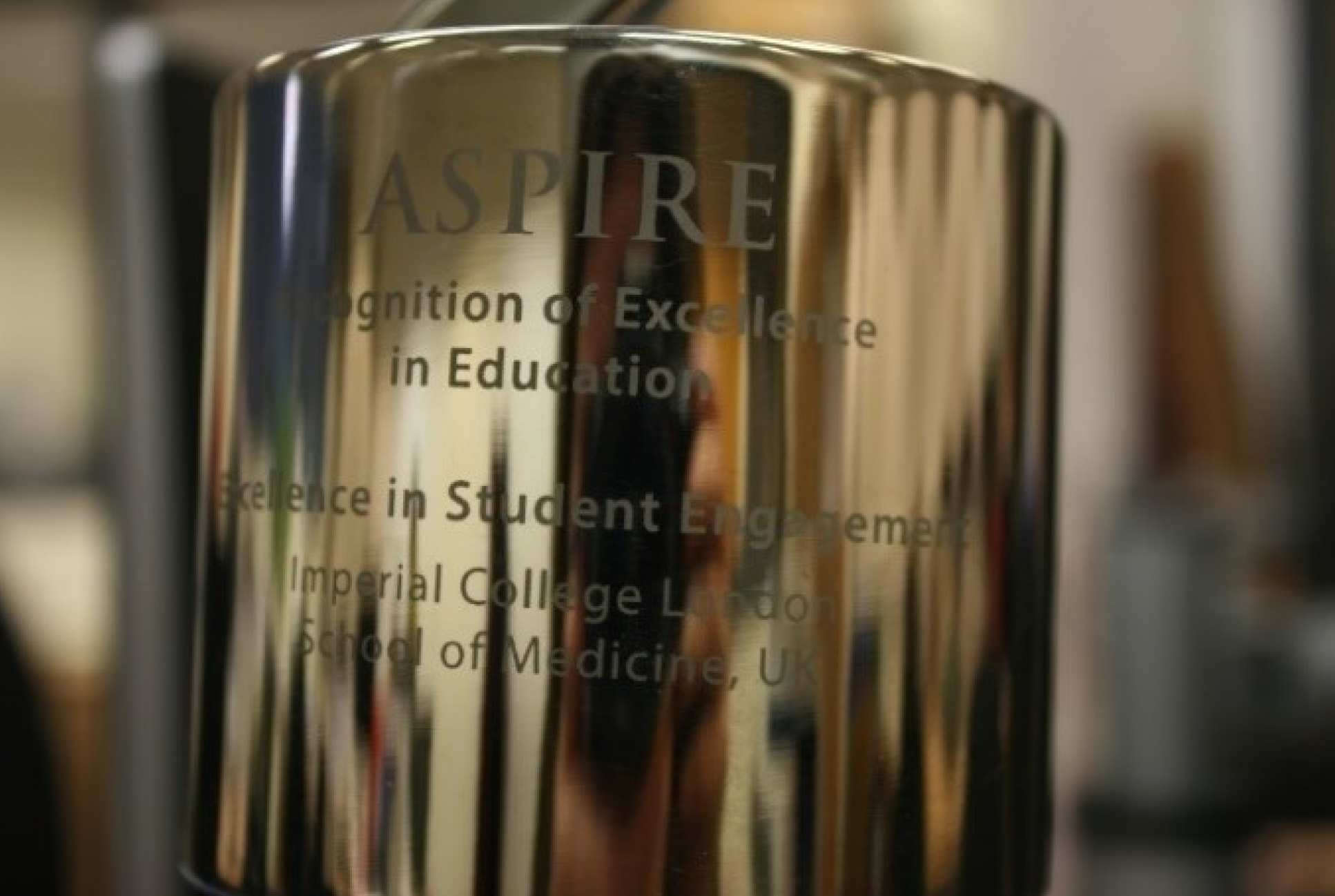School of Medicine wins ASPIRE award for Excellence in Student Engagement

School of Medicine representatives were officially presented with the award at the Association for Medical Education in Europe (AMEE) conference.
Launched at the AMEE conference in 2012, and implemented from 2013, the ASPIRE programme awards recognition in international excellence in education in a medical, dental or veterinary school.
The School's award was presented at this year's conference in Basel, Switzerland, and is one of only 15 awards have been given globally in the five years since the initiative commenced.
Applicant schools must demonstrate excellence in student engagement across multiple areas, including governance, curriculum, healthcare delivery and societal engagement.
Imperial’s School of Medicine (ICSM) was commended for the many and varied opportunities offered for student engagement, including the funding of a full sabbatical year for the School’s Student Union President.
Even as early as the application process, aspiring medics get insight into the importance of the student voice at ICSM, as applicants to the MBBS/BSc course at the School are interviewed by a panel that includes a current student on the course – an initiative involving around a hundred students each year.
Built in-house, the School’s unique curriculum mapping platform, Sofia, also received recognition for its facilitation of individual and active learning, as well as self-assessment, providing a detailed overview of the medical curriculum at the School, and linking broad themes that run throughout the programme down to discrete learning objectives for each course or module.
Described as ‘exemplary’, the School’s winning application also included the online ‘traffic light’ system of monitoring replies to student feedback, which provides a closed communication loop, and encourages further engagement in discussion and contribution of ideas.

Professor Sue Smith, Professor of Medical Education and Director of the Medical Education Research Unit (MERU) at the College, headed the ASPIRE application team:
“I am delighted that the School of Medicine has been recognised for its consistent excellence in student engagement. Applications for these awards are rigorously assessed against a formidable range of criteria, and applicants have to provide proof of their engagement activities, as well as demonstrate the impact of these.
We are proud of this achievement, which reflects the founding vision of our School, which has student engagement built into its fabric. It highlights the passion and commitment of the many members of faculty who recognise and encourage the importance of working in partnership with students.
I want to thank the whole team involved and everyone who gave input for their effort and dedication to this process.”
MBBS student Syra Dhillon, part of the joint staff-student team who put together the application for the award and who sat her BSc exams throughout the process, said, “It’s fantastic to have the School recognised internationally for the hard work and initiative it has put into its student engagement practices. It’s amazing to be part of an education community where the student voice is really recognised for its importance.”

The Aspire programmes for Student Engagement “utilises peer reviewers from around the world who have distinguished themselves for their experience and understanding of student engagement”.
Each school’s application is reviewed separately by three independent panellists, who come together to discuss whether the application merits recommendation for ASPIRE recognition. The recommendation is then sent to and discussed by the ASPIRE board, who decide the winning school.
You can see the School of Medicine winning team’s interview from AMEE’s Basel conference this year on YouTube, read more about the conference on the AMEE website, and the award categories available and previous winners on the ASPIRE website.
Article text (excluding photos or graphics) © Imperial College London.
Photos and graphics subject to third party copyright used with permission or © Imperial College London.
Reporter
Dorrit Pollard-Davey
Faculty of Medicine Centre